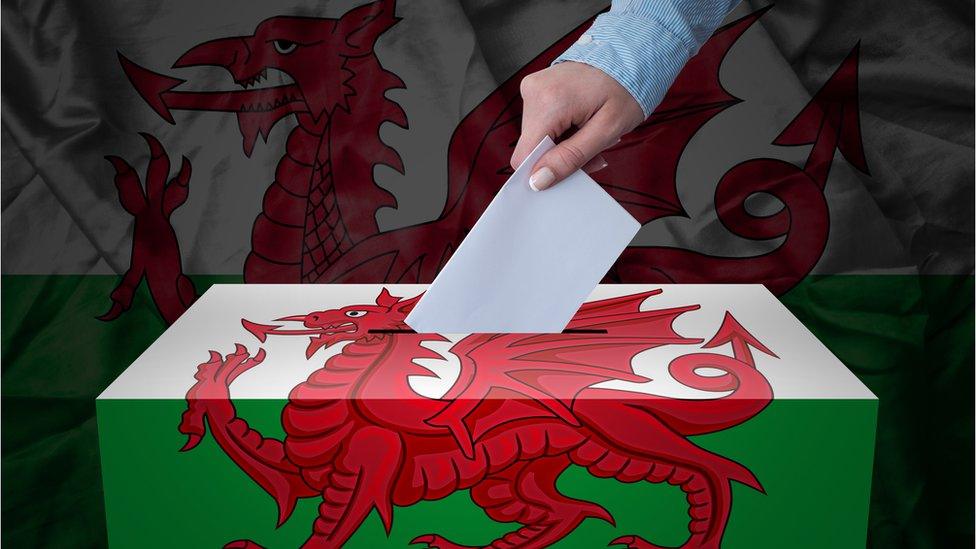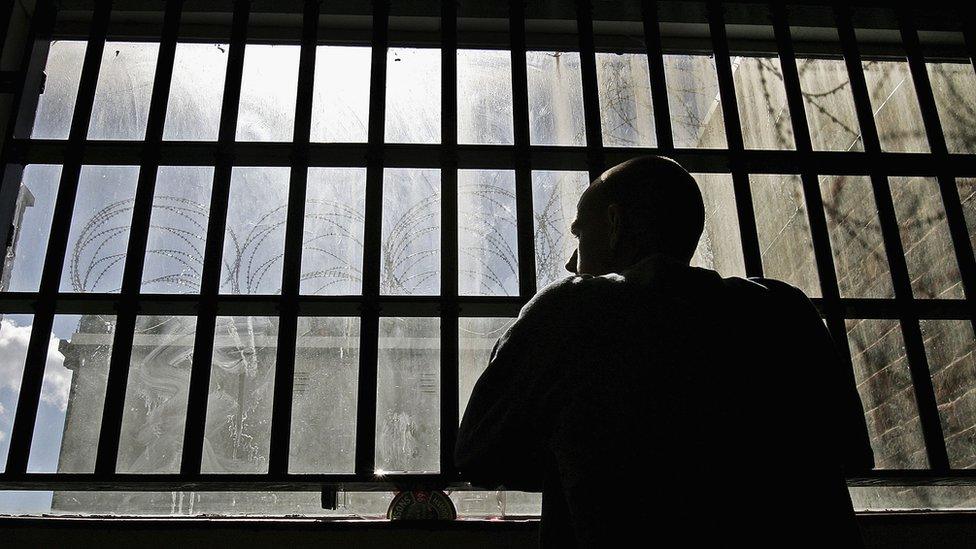Votes at 16: Major electoral changes planned for Wales
- Published
- comments
People give their thoughts on reducing the voting age to 16
Sixteen and 17-year-olds look set to vote in council elections as part of the biggest changes to Wales' voting system in 50 years.
Proposed new legislation, published on Monday, would also allow resident foreign nationals to vote.
And there are plans to give prisoners serving sentences of less than four years votes in local elections.
Local Government Minister Julie James said the legislation was about "reinvigorating local democracy".
The voting age was lowered across the UK from 21 to 18 in 1969.
In Scotland, 16 and 17-year-olds are already able to vote in local and Scottish elections, and had the right to vote in the 2014 referendum on independence.
It is estimated that lowering the voting age to 16 would add around 75,000 people to Wales' electoral roll.
Extending it to all resident foreign nationals would add some 33,000 at the next local elections in May 2022, based on 2018 Office for National Statistics data.
Around 1,900 prisoners would also gain the vote, in line with the recommendations of the Welsh assembly's equality committee.
The assembly also intends lowering the voting age for its own elections, under separate legislation, in time for the next Senedd poll in 2021.
The Welsh Government's wide-ranging plans for the 22 local authorities include:
Allowing councils to switch from a first-past-the-post voting system to the proportional Single Transferable Vote (STV) method
Enabling pilots of voting on different days and with polling stations in different locations
Moving to five-year terms between council elections - the norm is currently a four-year term
Allowing resident foreign nationals to both vote and stand in local elections
Ending the publication of councillors' home addresses on local authority websites
Allowing most council employees to run for election within the area they serve
Replacing community polls with a petitions system, similar to the assembly's
Requiring certain council meetings to be broadcast online
Ms James said Welsh ministers "believe in strong local government" and "want it to thrive".
"Twenty years on from devolution, this is a significant local government bill which reflects the journey of devolution and will deliver a major package of reforms, including local government electoral reform," she said.
"It aims to provide local government with new ways to support and serve their communities in these challenging times, while reinvigorating local democracy here in Wales."
The legislation - called the Local Government and Elections (Wales) Bill - was introduced to the assembly on Monday after being developed over five years.
It will need to be passed by AMs before becoming law. The Welsh Government is hoping the process will be complete by summer 2020.
- Published28 January 2018

- Published18 May 2019

- Published25 September 2019

- Published21 May 2017
